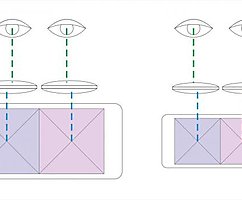I hear you: a fun challenging music, an acquired skill
 Bashny.Net
Bashny.Net

© Paul Villinski
Researchers at the University of Melbourne associate the pleasure derived from music, with the volume audible in her dissonance — "irregularities, hardness, discomfort, difficulty in listening". During one of the experiments, the scientists lost to the sounds of "pure tones" and various chords two groups: professional musicians, Conservatory students and ordinary people. After listening they had to assess the levels of dissonance and familiarity of sounds on a scale.
It is expected the musicians were more sensitive to dissonance than usual audience. But they also found that if listeners have encountered a certain chord in the past, they have failed to recognize its constituent notes. The manifestation of this particular chord seemed awkward and, consequently, unpleasant for hearing.
The ability to recognize notes and to enjoy the harmonies were directly related to music education. One of the study's authors Sarah Wilson argues that even the ability to recognize the pitch of the sound is acquired. From a practical point of view, this means that we can teach ourselves to appreciate music. For example, if you want to better understand jazz, you often need to listen to it — over time you will begin to recognize his inner beauty.
To test their theory, the researchers conducted another experiment. They gathered 19 persons without special education and taught them to recognize the characteristics of several chords. After ten lessons, the participants began to better define the notes. In addition, they noted that he had begun to feel in learned the chords less dissonance than strangers, no matter how harmonious they were "technically".
The most outstanding conclusion from the received information is that it overturns centuries of theories about the physical structure of the human ear as the main factor in determining pleasant sounds. Perhaps with the help of new discoveries will be able to better understand the development of Western musical tradition, which actively began in the middle Ages, and its differences from, for example, Eastern music traditions.published
P. S. And remember, just changing your mind — together we change the world! ©
Source: theoryandpractice.ru
Tags
See also
Brain tricks
Stunning 60 "hacks" of the brain that will make your life better
11 things that have to hear the man in depression
History of guitar
How to improve communication skills
Chronicles of stars
Great people
Stephen King, the prose of life
"Amazing stuff" person.
Overclock the brain or internal virtualization consciousness

















